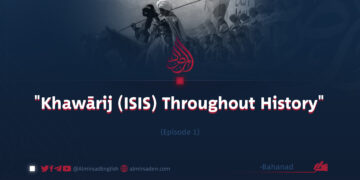Part 10
Author: Harith Ubaidah
The Leadership Qualities of Osman I: The Founder of the Ottoman Empire
When examining the life and legacy of Osman I, the founder of the Ottoman state, his multifaceted leadership emerges as both inspirational and transformational. As a military commander, political strategist, and devout Muslim, Osman laid the cornerstone of what would become one of the most enduring Islamic empires in history. The following traits encapsulate the noble character and strategic genius of this remarkable leader:
1. Courage and Patience
In 700 AH (1301 CE), when the Byzantines and Christian leaders of Bursa, Mudanya, Adranos, and Nicaea formed a Crusader alliance against Osman bin Ertuğrul, he responded with remarkable bravery. Personally leading his forces into battle, Osman decisively crushed the Crusader coalition. His valor became legendary, setting a standard of courage for generations of Ottoman warriors to follow.
2. Wisdom and Foresight
Upon assuming leadership of his tribe, Osman demonstrated political acumen by supporting Sultan Alaaddin of the Seljuk Sultanate of Rum in military campaigns against the Christians. His contributions led to the conquest of several seemingly impregnable cities. In recognition of his achievements, Sultan Alaaddin granted Osman the right to mint coins in his name and to have his name pronounced in the Friday khutbahs throughout his territories—an exceptional honor symbolizing political legitimacy.
3. Sincerity and Religious Devotion
Osman’s sincerity and devotion to the cause of Islam deeply resonated with the people residing in the regions under his rule. Witnessing his commitment, many pledged their allegiance, thereby laying the foundations of an Islamic empire that would stand as a bulwark against Christian hegemony. His authenticity inspired not just support, but also reverence from allies and adversaries alike.
4. Perseverance in the Face of Adversity
Osman’s military career is marked by sustained efforts and remarkable patience. Between 707 AH and 712 AH, he captured key strongholds including Ketalp, Akhisar, Kocahisar, Koyunhisar, Yenişehir, Taraklı, and Tekfurpınarı. These victories paved the way for the historic conquest of Bursa in 717 AH (1317 CE), despite prolonged and grueling battles. Among his most persistent adversaries was Amir Shaha Aqrinos, the Byzantine commander of Bursa, who eventually surrendered, marking a decisive shift in the region’s power dynamics.
Allah (SWT) stated in the Holy Qur’an:
يَأَيُّهَا الَّذِينَ آمَنُوا اصْبِرُوا وَصَابِرُوا وَرَابِطُوا وَاتَّقُوا اللهَ لَعَلَّكُمْ تُفْلِحُونَ ]
“O you who have believed, persevere and endure and remain stationed and fear Allah that you may be successful.” (Quran 3:200)
5. Religious Zeal and Inspirational Character
Osman’s influence extended beyond the battlefield. His character drew admiration even from his enemies. Amir Shaha Aqrinos, after investigating Osman’s personality and leadership, embraced Islam. Osman conferred upon him the title of “Bey also spelled as Baig,” and he subsequently became one of the prominent commanders of the Ottoman state. Numerous Byzantine generals followed suit, inspired by Osman’s example and the vision he espoused.
The Ottoman cause was also supported by various Islamic groups, including:
Ghaziyan-e-Rum (The Ghazis of Rum): Veteran warriors of the frontier, who had long defended Islamic lands from Byzantine incursions, bringing their experience and fervor to Osman’s cause.
The Akhiyan (The Brotherhood): A devout group of Muslim merchants and philanthropists who financed religious and military activities, constructed mosques, lodges, and inns, and supported the ghazis.
The Hajjiyan (The Pilgrims of Rum): Missionaries dedicated to spreading Islamic knowledge and fostering awareness of Sharia among the people.
These groups were instrumental in building the spiritual and social infrastructure of the Ottoman state.
6. Justice and Impartiality
Turkish historical sources recount that after the conquest of Karacahisar in 684 AH (1285 CE), Osman was appointed governor by his father Ertuğrul. In one notable incident, Osman ruled in favor of a Byzantine Christian over a Muslim litigant in a legal dispute. When the Christian, astonished, asked why he was granted justice despite not sharing the same faith, Osman replied: “How could I not rule justly, when the Lord we worship commands: ‘Indeed, Allah commands you to render trusts to whom they are due and when you judge between people to judge with justice.'” (An-Nisa 4:58)
This incident so impressed the Christian that he and his entire tribe embraced Islam. Osman’s unwavering commitment to justice became a cornerstone of his governance, earning him the trust and loyalty of diverse communities.
7. Fidelity to Promises
Osman was renowned for honoring his commitments. When the Byzantine commander of Uluabat surrendered the fortress and handed over the keys, Osman pledged that no Ottoman would cross the bridge into the city. He upheld this promise, and his successors continued to honor it—exemplifying the Islamic ethic of fulfilling covenants even in victory.
Osman I, or Osman Ghazi, was not merely a military conqueror; he was a principled leader whose qualities of justice, patience, sincerity, and religious devotion formed the bedrock of the Ottoman Empire. His ability to inspire allies, gain the respect of adversaries, and build institutions of enduring strength is a testament to the transformative power of righteous leadership. The legacy he established continues to serve as a model for leadership rooted in faith, wisdom, and unwavering resolve.


















































